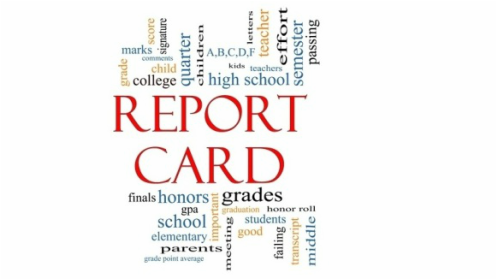Peak College Consulting, where we Think Big, Reach High and Achieve More... together.
Due to the recent college admissions scandal, I, like other ethical, educated college counselors, feel the need to speak up about the admission trends. I won’t spend my time worrying about those who starred in this scandal, there has been enough written about them and their unethical actions. However, I would like to address a major issue that is plaguing our young people, and that is pressure. It is not only the wealthy that are taking desperate measures to try and guarantee admission into college, our children are doing it every day. Students are participating in after school clubs that they have no interest in at all. They are running for school elections but want no responsibility and have no passion for leadership. Students are taking AP classes who struggled while in college prep and honors classes because they feel they are falling behind. The pressure they are feeling is real and understandable but unfortunate. Students are struggling to find out how they can stand out within a group of standouts. What will make them shine and get those coveted spots the admission counselors are filling?
So July has arrived and your new senior students are letting out a huge sigh of relief as they complete their junior year. Many of these students prepared and took the dreaded SAT and ACT tests, while at the same time sat for the May AP exams. Meanwhile in the back of their minds they worried all year about GPA, class rank, and how they are competing with their peers. Summer is the first sign since September that these new seniors have seen relief and relaxation. But don’t let that fool them into thinking that the summer before their senior year is a time for slacking and doing nothing. Quite the opposite! After a few weeks of rest and rejuvenation, this summer is time for productivity and creativity! I can hear the groans from my own living room as my own rising senior gets the news that indeed there is work to be done!
The fall of senior year is a common time for burnout and stress. There are several things that can be done to help this. Many students are ill prepared for the rigorous academic load of their senior year classes along with the demands of the college process. Between writing the much dreaded personal statement essay for the Common App, to filling out applications and supplemental materials required, students quickly become aware that they are ill equipped to handle everything in such a short period of time. The result can be burnout, stress and anxiety, disappointing grades, and poorly written essays. The best thing to do to avoid this senior year burn out is to be prepared and do some work ahead of time. During the summer rising seniors want to put themselves in a good position for the upcoming fall and be ahead of the game with everything they possibly can. There are three areas, where if your student puts some work in during the summer, they will be rewarded with less anxiety and stress come September. This is especially true with the dreaded essays and applications that are required. As a parent of two college students and one rising senior, I understand how difficult it can be to motivate your children to do anything, especially because they aren’t even home, never mind wanting to write a personal essay. That being said, setting aside a few hours each week will make all the difference for you and your student! One of the most crucial things a rising senior can do is start working on their personal statement essay. This essay will be needed for the Common App and also can be adapted for other colleges that ask for their own essay. This is the most important essay that your students will write and it takes several (can be even up to 5 or 6) drafts to complete. Waiting until the fall to start this essay is unnecessarily stressful for seniors and by making them get ahead of the game, you have helped them tremendously. I hope to hear the words “Mom you were right, it’s a good thing I started this summer” from my own senior! Who knows, miracles do happen. The more the students can put into this essay during the summer, the less time they will have to do it during their rigorous senior year. The essay itself will also be a stronger piece of writing when students are less stressed and have more time to devote to it. Again, doing a little bit each week will make it feel less overwhelming in the end. The personal essay is so difficult for teenagers because they are not used to writing personal narratives. However, the more personal the essay, the better the admissions officer can learn about that particular candidate. With the personal essay, it is the only part of the admissions process the student now has control over. With SAT’s, ACT’s, GPA’s, transcripts, and recommendations, the student is sending what they have earned or what is a reflection of them. With the personal essay, the students have control over what is said to the admissions officers. It can reflect what really matters to them, what they believe in, their passions, their personal story or triumphs and struggles, and most importantly, what they want the admissions to know about them. By now your students should have at least a rough idea of what schools they are interested in. This could include as many as 20 or more schools for some. Summer is the time to narrow this list down to the list of schools to which applications are going to be sent. This list should consist of 7 to 12 schools and be a mix of high, medium, and low chance of admissions. During the summer have your student research the schools on their list. Obtaining as much information about the schools via books, visits, contacts, and websites will help students narrow their list. Looking at the Princeton Review is just one example of how students can do this. Not only will this book go over all the details of the school, with facts directly from the school, it also incorporates students’ comments and opinions. A good tip is to find schools where the school and the students are in agreement, not drastically opposite with their comments. In this book (or website) you will also see a list of comparable schools, that Princeton has provided, that are similar to the school being researched; this is another way to find schools to add to your list. This activity should not be rushed and by taking an hour each week, students will take the time needed to completely absorb all the information and make informed decisions. Rushing this process is not advised and waiting until the end of the summer will put students in jeopardy of creating a meaningless college list. The third item your senior can start early on, is the Common application App. The Common App, used by more than 700 schools Nationwide, can start to be filled out, August 1st. You can bet that will be my target date for not only my one daughter but also for all of my rising senior clients. No better time than the first day to start those applications. Some schools use their own application and may not be ready until after this August date. Have your seniors check the dates and requirements of each school on their completed list so that not only do they know what application they are required to use, but also all the deadlines that they need to meet. I cannot stress enough that getting your students in the mindset that this summer is crucial to getting a jump start in the college process. It will make a world of difference for them come September. The last bit of advice to go along with this is having a system for students to keep all of their information together. A simple spreadsheet with important dates, deadlines, contacts, passwords, and user names is crucial. If they have not started doing this, then it is another thing to add to their summer list of to do’s….just don’t tell them I said so! Rebekah Elmore is an Education Consultant and owns PEAK College Consulting where she works with students and parents throughout the entire college process. As college decisions are finalized and deposits are made graduating seniors are looking at the last days of high school. However, there are a few things to remember as these graduates enter the summer of their lives. With graduation festivities about to begin, summer jobs to commence, and college bags to be packed, there is much to be done before these little cherubs enter the next phase of their lives. For students who are enjoying their first few weeks of freedom from high school, many are not thinking about college responsibilities. With proms, and class trips, they may not be paying attention to deadlines and requirements for the fall semester. Some schools have multiple steps to follow with deadlines of June 1st or 15th. These deadlines are important for students to meet because they often include room surveys for paring roommates, scheduling an orientation date, testing requirements for class placement, and also course registration for the first semester. For the larger universities, this process can be multi stepped and include long modules. One of the first things incoming freshmen will have to do is set up their college emails either via an email link or through the schools portal. Most high school students do not check their emails regularly but as college students, it is a must that they check their new school email, every day. One suggestion is to have your student set up the new email onto their phones. Colleges will start to use these emails as a regular form of communication and if students are not checking these regularly, they may miss deadlines or important notifications. For some schools, these requirements must be completed before orientation and if they are not, students might miss out on course selection because the other freshmen will have registered, in some cases locking students out of required courses. This is obviously not how students want to start their freshman year. It could lead to the start of missing out on required classes and mean that students could have to extend graduation. So, no matter how much fun these next two weeks are bound to be, encourage your student to stay on top of emails, requirements, testing, and scheduling, whatever their school is looking for. Another thing to be aware of is making sure that students are safe and making good decisions. For many, this is a time of graduation parties and celebrations like proms. It is very important to have a discussion with your student about drinking and driving, about keeping themselves safe, and staying out of trouble. Most students at graduation from high school are 18 which make them legal adults. With this responsibility comes the reality that legally they are adults and will have records if in fact are caught at parties with alcohol or other illegal drugs. I believe students should be able to have fun and celebrate with their friends however; they have so much to lose and need to be reminded of this during the next few weeks. As the summer truly begins for these graduating seniors, summer jobs will begin as well. It is a good time to discuss with your students expectations on what their financial responsibility is for their contribution towards tuition and also spending money during the school year. Each set of parents have their own idea of what is appropriate for their student, but, for many, this discussion has not happened with their graduates. This is a good time to discuss budgets and expectations. It is a good time to get students a bank card, debit card, and or credit card. This next step into adulthood and entering college is monumental and finances often get overlooked. For many 18 year olds they have never had to pay a bill, deposit money into the bank, or be responsible for their own spending and saving. Discuss with your student how much they should save each paycheck and how much is reasonable to spend on a weekly basis. Discuss what monthly fees they may have while in school, or how much books and travel may cost them. As I mentioned, each family will have a different idea as to who is responsible for what, but no matter that decision, every student to some degree will need to understand their own finances and need guidance from parents as to what that looks like. As the summer progresses, I will add to this list as to what are some different things that need to be taken care of and discussed, along with actions that need to be taken. Here are just the first three ideas that should be done in the next few days. Congratulations to all you parents with recent graduates. As the mother of two who will soon walk down in cap and gown, I feel both your trepidation and joy during this time. One of the questions our clients ask us the most is, should I risk a lower grade in the tougher class, or get a higher grade in the less demanding class? For most Independent Education Consultants, they will say …it depends. You wonder: what can it depend on; well a few things. All highly selective and even moderately competitive colleges and universities will be most interested in the rigor of course selection throughout the high school years. If a student with a “soft” schedule applies to a highly selective school, their application will be basically dead on arrival. The school will not take that application seriously and will move onto the next applicant. If a school had to make a choice between a high GPA and a rigorous curriculum, they will pick the curriculum every time. Schools want to know that no matter the high school you went to, you took the hardest and most competitive course load you could handle. The most important part of high school is push yourself and grow both academically and personally. Part of that includes knowing what course load you can handle. A school does not want you to take all AP classes your junior and senior year, and struggle to maintain good grades. They want you to be selective and decide where you can push yourself and where you give yourself a break. If you are a math and science geek, did you take the highest courses available? Were you successful or was it a struggle? If you can maintain at least a B in your highest level, then you are taking the right course. OR, are you taking a college prep course and receiving a 98% average? If they had to choose between the two, they would rather a B in honors or AP than a 100% in a non-honors course. Yes, your GPA might not be as high, but most high schools will weight your scores, which is also helpful, and all colleges will acknowledge the rigor you have decided to take on. The colleges and universities will look at what your high school has to offer and what you took advantage of regarding that curriculum. Did your school offer only five AP courses and you take four? Did your school offer 20 AP courses and you take none? How did you compare to the students in your school? How did you do on your AP exams? All of these things are compared and analyzed while making the decision on acceptance. For my friends out there who have freshmen and sophomores, my advice to them is to map out what they want to take the next four years and see if it is doable. Don’t be tied to this roadmap but use it as a guide of where they are going and what they want to accomplish. Don’t discourage a student if they want to push themselves but at the same time be the voice of reason when you need to be. So, you ask, is it better to take easier classes and get a higher grade, or risk taking the harder class and possibly getting a lower grade. I say, it depends! What are your interests and strengths, what can you handle while still being happy and productive? These are all important questions to be asking yourself when you start thinking about your course load for next year. There is no correct answer, just what is right for you! |
Categories
All
Archives
January 2024
|
Follow our socials! |
Associations |
Contact us978-518-1696
info@peakcollegeconsulting.com 29 Daniel Lucy Way Newburyport, MA 01950 Schedule an appointment now! Credit Card Registration Instructions |
Copyright 2022, Peak College Consulting









